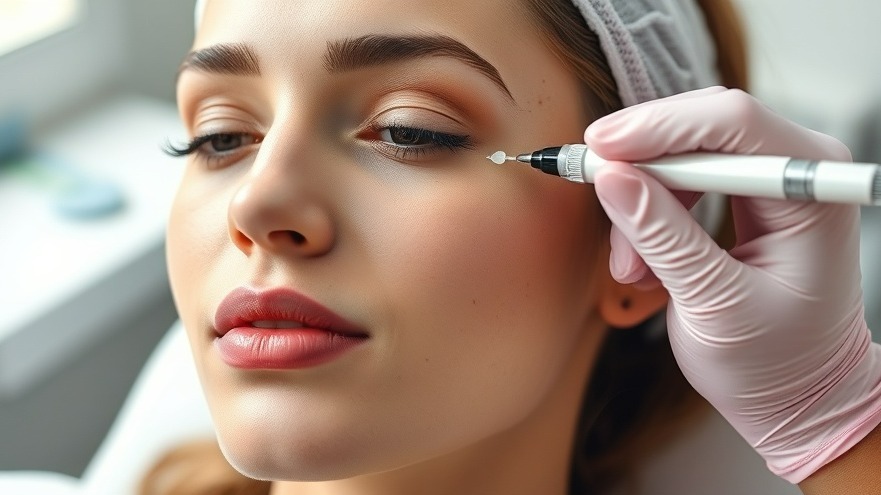
Understanding the Psychological Benefits of Botox
When discussing Botox, the immediate association often revolves around beauty standards and anti-aging effects. Yet, as research reveals, the profound psychological implications of this cosmetic procedure can significantly alter lives. For concierge medical practice owners, understanding the impacts of aesthetic treatments can not only improve patient satisfaction but also enhance the overall health care experience.
The Mind-Body Connection: A Deeper Look
Long before the advent of Botox, studies painted a clear picture of the mind-body relationship. Research consistently illustrates that improvement in one’s appearance correlates with heightened self-esteem and a boost in overall happiness. Being physically content allows individuals to engage more confidently in social settings, thus demonstrating the intrinsic value of aesthetic treatments.
Steps to Emotional Wellness Through Aesthetic Medicine
As a practitioner focused on mental wellness, the implications of the ‘facial feedback hypothesis’ in Botox treatments should be emphasized. This theory posits that our facial movements not only mirror our feelings but can actively shape them. With Botox relaxing the muscles responsible for frowning, patients often find themselves feeling lighter and more positive, breaking the cycle of negative emotional feedback. A study from the University of California San Diego supports this, revealing significant reductions in anxiety levels among Botox recipients compared to other treatments.
Building Confidence in the Professional Sphere
In competitive environments such as Miami, the impact of enhanced confidence after Botox is not just personal but professional. Many patients discover newfound assurance during presentations or networking opportunities, opening doors for growth and connection. This dynamic is crucial for medical practice owners looking to attract patients seeking both physical and mental wellness treatments.
Empowering Patients in Their Aging Process
Aging often invites anxiety as individuals grapple with societal perceptions of beauty and worth. Botox serves as an empowering tool, helping patients regain control over their aging narrative. By addressing dynamic wrinkles, they can enter new life phases with confidence, viewing aging as a chapter of their life rather than a decline. This empowerment can be profoundly healing, positively affecting both mental health and outlook on life.
The Ripple Effects Beyond Beauty
It is vital to appreciate that the psychological benefits of Botox extend beyond individual self-perception. When patients feel good about their appearance, they may exhibit a greater willingness to engage socially and express themselves confidently. This can foster stronger relationships and contribute to a more supportive community environment.
Rethinking the Role of Aesthetic Treatments in Health Care
Incorporating Botox and similar aesthetic treatments into a wellness practice can offer providers a diverse approach to patient care. By acknowledging the significance of mental and emotional well-being in physical treatments, medical professionals can strengthen their rapport with patients. This affords a more holistic health strategy, focusing on patient satisfaction and overall wellness as intertwined entities.
Conclusion
The discussion around Botox has evolved from mere cosmetic enhancement to a realm of mental wellness, empowerment, and confidence-building. As concierge medical practices aim to be leaders in the health care landscape, recognizing the psychological effects of such treatments can serve as a valuable differentiator. Further integrating these practices and understanding their holistic benefits positions medical providers to better serve their communities.
 Add Row
Add Row  Add
Add 




Write A Comment